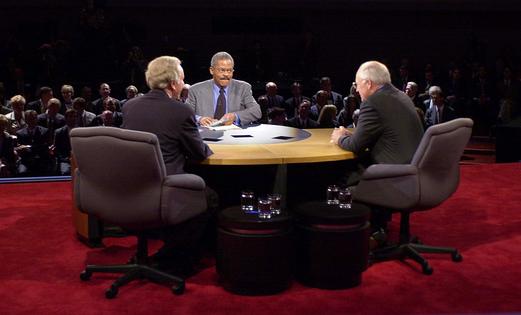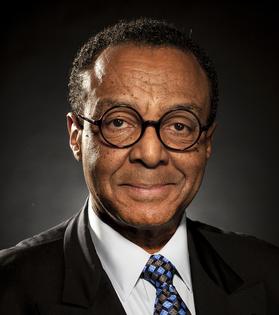Bernard Shaw, a Trailblazing Icon Who Knew When to Leave the Microphone
As a journalist, Bernard Shaw was an iconic pioneer who hated to be called “iconic.”
Yet, as far as I was concerned, the label fit. He turned his name, along with that of his employer CNN, into strong brands before branding in today’s marketing jargon was cool outside of a cattle ranch.
I search for apt descriptions now because the award-winning retired CNN anchor and Chicago native is no longer with us. Bernard Shaw died at the age of 82 on Wednesday of complications from pneumonia in a Washington hospital, his family announced, and there was hardly a dry eye in our house when we heard the news.
Shaw was the first chief anchor at Atlanta business mogul Ted Turner’s risky new venture called CNN in 1980. Although it might not look all that risky at all in today’s crowded media environment, back then the idea of expanding TV network news to 24/7 from its traditional 30 minutes, five nights per week, seemed about as distant as, say, electric cars.
But CNN made it work well enough to inspire Fox News and MSNBC and whatever the YouTube era comes up with next — and Bernard Shaw, as principal anchor, was in the precarious position of making it work or perhaps taking the blame if it didn’t.
It took a big story, in this case the Iraq War, to turn CNN into must-see TV in the early ‘90s, and what we saw was largely Bernie, along with their crackerjack international news team.
As Baghdad came under attack from U.S. forces in January 1991 during Operation Desert Storm, Shaw’s calm steady voice describing the rockets’ red glare outside their hotel window would be favorably compared to Edward R. Murrow and Walter Cronkite, two of Shaw’s broadcast role models.
“He had the microphone first,” fellow CNN reporter Peter Arnett, who also was in the room, would later recount. “The instinct to broadcast, to be there. He didn’t waiver. He didn’t hesitate.”
Shaw is also remembered famously for asking Democratic presidential candidate Michael Dukakis a question during a 1988 presidential candidates’ debate that stirred controversy for the way it brought Dukakis’ wife into the back-and-forth: “Gov. Dukakis, if Kitty Dukakis was raped and murdered, would you favor an irrevocable death penalty for the killer.”
Although many, particularly Democrats, were upset by the bluntness, it probably was Dukakis’ robotic response, heavy on logic, light on feelings, that cost him more votes while Shaw’s credibility remained largely intact.
“You got to have it in the gut to be a good journalist, a good reporter — and a good editor, a good writer, a good broadcaster,” said Cronkite in a CNN interview when Shaw retired in 2001, ”and he did all of that.”
Shaw met Cronkite in Hawaii when the 1959 graduate of Dunbar Vocational High School in Chicago was serving in the Marines. Shaw heard that Cronkite was shooting a documentary on the same island. As Cronkite confirmed, Shaw left about 40 messages for Cronkite for two days at his hotel until Cronkite met him in the lobby.
Shaw in his neatly pressed uniform wanted to know how to pursue a journalism career. They talked for about 40 minutes and began what would turn into a long-running friendship years later when Shaw went to work for CBS News — and appropriately won the Walter Cronkite Award for Excellence in Journalism in 1994.
But Bernie, a notably private man in a profession with no shortage of grandstanders, still had the capacity to surprise his fellow journalists.
In a special farewell program at CNN 2001, I had the honor of joining a tribute panel with Judy Woodruff, who co-anchored a politics program with Shaw, ABC anchor Sam Donaldson and PBS NewsHour co-host Gwen Ifill. Shaw surprised all with his grim assessment of the toll that extensive travel had taken on his family life.
“When I think about all the precious times I was away from my daughter when she was growing up, my son and Linda,” he said, “in retrospect, it was not worth it.”
I wasn’t the only panelist who found the candor and finality of his gloomy assessment to be stunning. But, as my own wife reminded me later, people do need to have a life outside of work, even when they have become iconic.
True. But I still miss him.
========
(E-mail Clarence Page at cpage@chicagotribune.com.)
©2022 Clarence Page. Distributed by Tribune Content Agency, LLC.
(c) 2022 CLARENCE PAGE DISTRIBUTED BY TRIBUNE MEDIA SERVICES, INC.










